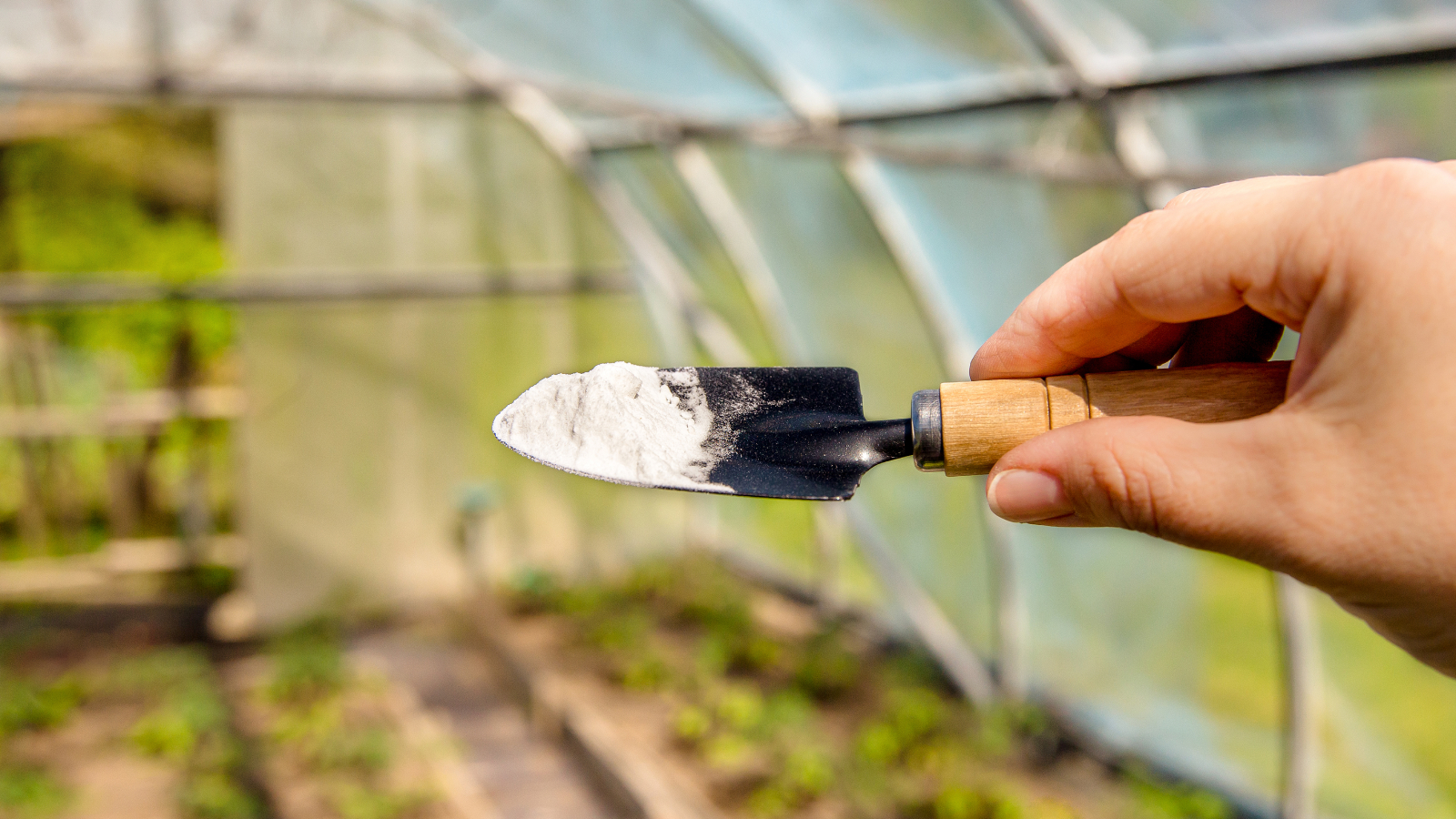Best Ways To Use Baking Soda For Plants & How NOT To Use It
Maybe your grandparents used kitchen baking soda in their gardens but you may want to consider other ways to combat fungus that won’t cause salt buildup in the soil.


Is baking soda for plants a good idea? As gardeners, we are often looking for non-toxic, chemical-free ways to take care of our plants. Baking soda, a common home kitchen item, is bicarbonate of soda, a compound that’s basic on the pH scale. Baking soda raises pH which raises alkaline content. Because of this property, baking soda for plants has commonly been used as a fungicide.
Many common fungi germinate best in acidic conditions. Because using baking soda on plants raises the pH and creates a less acidic environment, it was thought a fungus would not prosper in such a condition. However, too much baking soda on plants can create unfavorable conditions that lead to other issues.
Is Baking Soda Good for Plants?
Baking soda for the garden is one of the things my grandparents taught me. My whole family swears by this practice. And even if it doesn’t help, at least we’ve all thought it’s not toxic. New research indicates baking soda’s effectiveness as a fungicide is limited.
The benefits of baking soda in the garden depend on the ability to control certain conditions. It is also important to use the product early when disease is not present or is present in low levels. In high levels of disease, the amount of baking soda necessary for control can be detrimental to plants. Also, the effects of a baking soda treatment are not long-lasting. This is because the bicarbonate of soda will inhibit spore growth but not kill the spores.
Will Baking Soda Kill Plants?
Excessively high levels of many things can kill our plants. Because baking soda increases soil pH, many of the important macro and micro nutrients plants need may become unavailable to them. Baking soda in the garden can also contribute to soil compaction and crust build-up. This leaves the soil less porous causing nutrients and water to move poorly through it.
Baking soda is essentially a salt. Salts that build up in soil can cause desiccation of roots and finally leaves and stems. Wilting and stunted growth will be the first signs and the toxicity can eventually lead to plant death. When baking soda solutions are sprayed on foliage, the toxicity can cause chlorosis, yellowing of the leaves.
How to Use Baking Soda in the Garden
Spraying or foliar applications of baking soda are the most common methods. Mixing straight baking soda into the soil can cause excess salts. A soil drench that is diluted may be effective if you are targeting root rot, but will also increase the salts in the soil to toxic levels.
Sign up for the Gardening Know How newsletter today and receive a free copy of our e-book "How to Grow Delicious Tomatoes".
The timing of spraying a baking soda solution is important. Apply it early in the season to combat fungal disease. Avoid spraying during the heat of the day. Since baking soda is water soluble, it must be reapplied after rain or irrigation to be effective. Use 1 tablespoon (14 gr) per gallon (4.5 l) of water. For the mixture to be more effective, add a bit of horticultural oil. This will act as a surfactant and help the mixture adhere to leaves when used as a foliar spray.
If you need, spray bottles are available from $4.99 on Amazon. Opt for a capacity of at least 1 gallon so that you can make enough solution.
DIY Baking Soda Plant Spray
For a home remedy to several fungal diseases, mix 2 ½ tablespoons (37 gr) of horticultural oil in a gallon (4.5 l) of water, with 4 teaspoons (16.74 gr). Stir or shake the mixture to combine it well.
Other Effective Fungicides
Since baking soda has a tendency to build up in soil which will accumulate salts and can damage foliage, here are some alternatives to consider. Neem oil is widely available and helpful in combating many fungal diseases. A 30 percent solution of milk to water has also been shown to be non-toxic and potentially effective.
Selecting fungus-resistant seeds and plants is an easy way to avoid fungal disease. Spacing plants, watering only when plant leaves can dry fairly quickly, avoiding overwatering, and using a slow-release fertilizer will also minimize fungal issues.

Bonnie Grant is a professional landscaper with a Certification in Urban Gardening. She has been gardening and writing for 15 years. A former professional chef, she has a passion for edible landscaping.